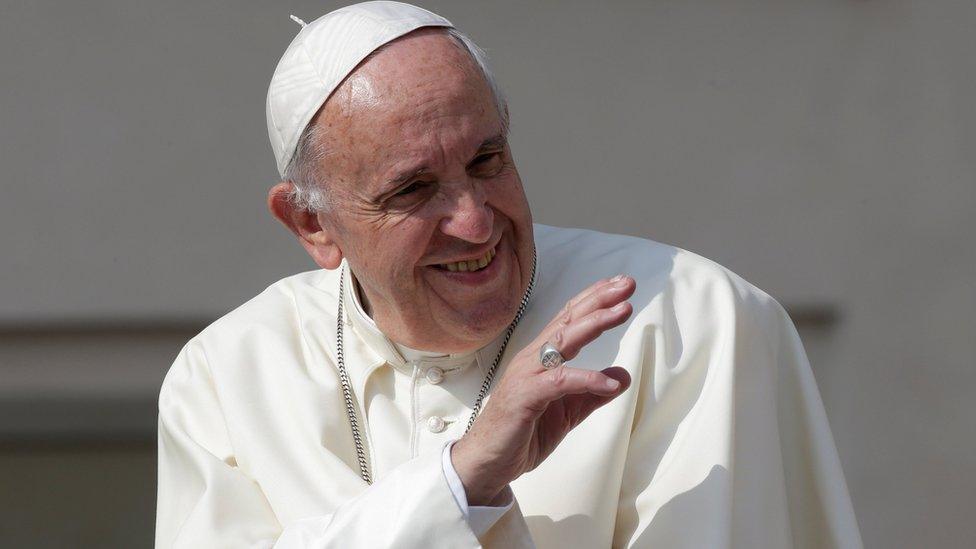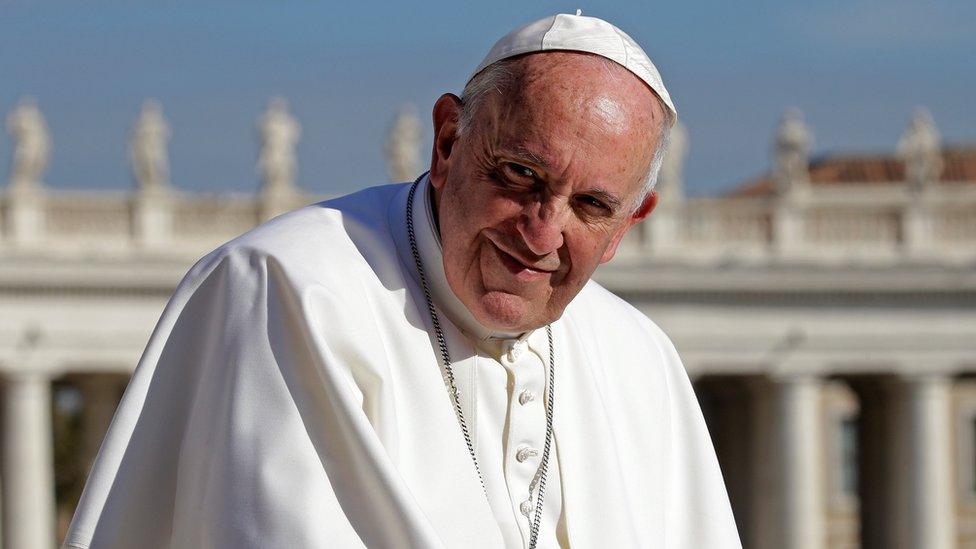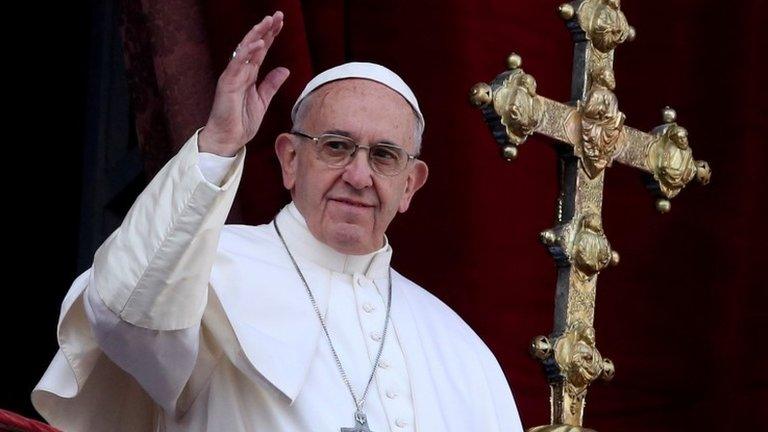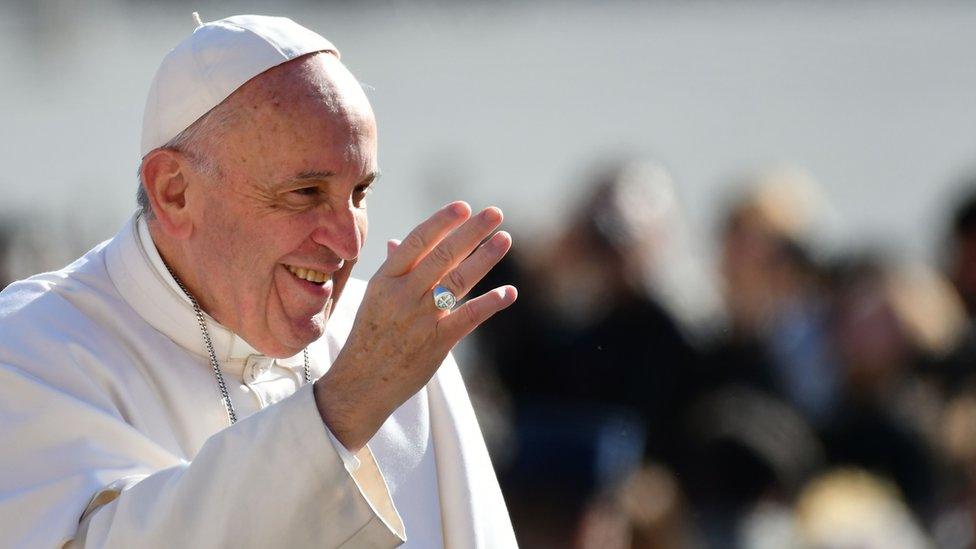Pope Francis 'consulted psychoanalyst' in 1970s
- Published

The pope said the sessions helped him "a lot"
Pope Francis sought the help of a psychoanalyst for six months when he was 42 and found the experience beneficial, he has been quoted as saying in a new book.
It is not clear why the Pope attended the sessions. He was the leader of the Jesuit order in Argentina in the 1970s.
The Pontiff, who is 80, also said that he now felt free.
The information features in a book by French sociologist Dominique Wolton
"For six months, I went to her once a week to shed light on certain things," the Pope said, according to the book Pope Francis: Politics and Society, based on 12 interviews.
"She was very good, very professional... but she always remained in her proper place," he added, without revealing the reason for the sessions or identifying her.
At that time, between 1978 and 1979, Argentina was ruled by a military dictatorship, which ran from 1976 to 1983.
Rights groups say up to 30,000 people "disappeared" during the period.
Some rights groups have also raised questions about his role at that time, and particularly about the kidnap of two Jesuit priests, in 1976.
He was accused of effectively delivering them into the hands of the authorities by declining to publicly endorse their social work. His office has always denied the accusations.
Of his psychoanalyst, he said: "Then one day, before she died, she called me. Not to receive the sacraments, because she was Jewish, but for a spiritual dialogue. She was a very good person. For six months she helped me a lot."
In Buenos Aires, it is not unusual to visit a psychoanalyst and people often talk about it openly. The practice began taking off in the 1960s, but was less freely discussed during the dictatorship, says Modesto Alonso, a psychologist in Buenos Aires.
"Psychologists were not welcomed by the military junta. Thinking and being helped to think was seen as dangerous," Mr Alonso told the BBC.
In the interviews, the Pope, who has spoken about the need for a more open and inclusive Catholic Church, also criticised "rigid priests, who are afraid of communicating".
"It's a kind of fundamentalism. When I come across someone rigid, especially if they are young, I say to myself that they are sick. In reality, they are looking for security."

Pope Francis

Born Jorge Mario Bergoglio on 17 December 1936 in Buenos Aires, of Italian descent
Ordained as a Jesuit in 1969
Studied in Argentina, Chile and Germany
Became Cardinal of Buenos Aires in 1998
Seen as orthodox on sexual matters but strong on social justice
First Latin American and first Jesuit to become pope, the 266th to lead the Church
Said to be a football fan, supporting Buenos Aires team San Lorenzo de Almagro
- Published28 October 2022

- Published10 March 2017

- Published10 March 2017

- Published27 March 2016